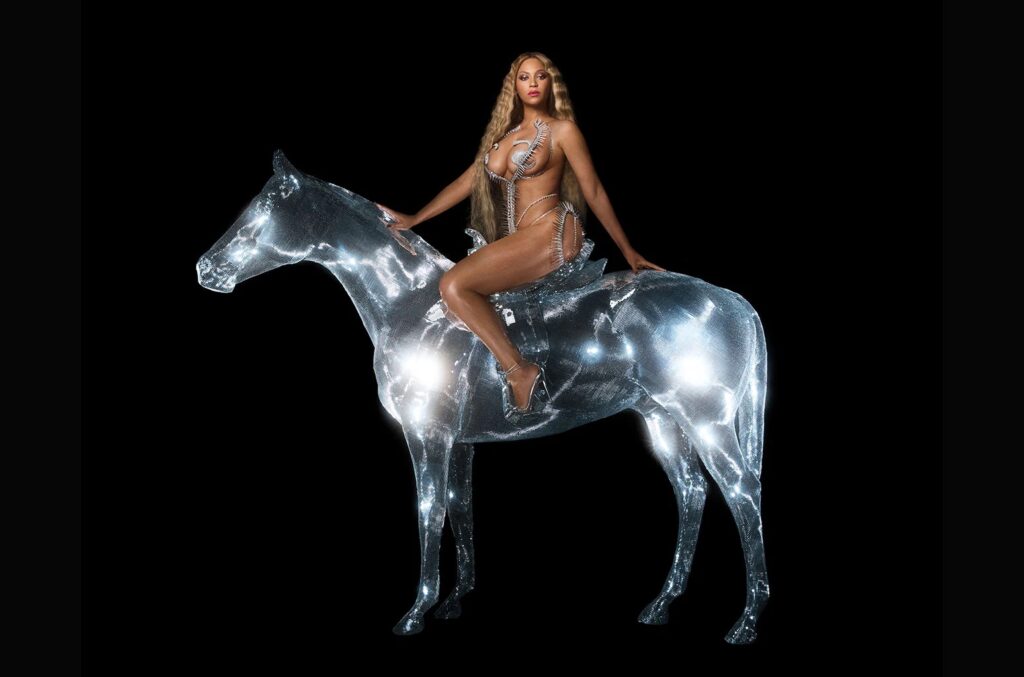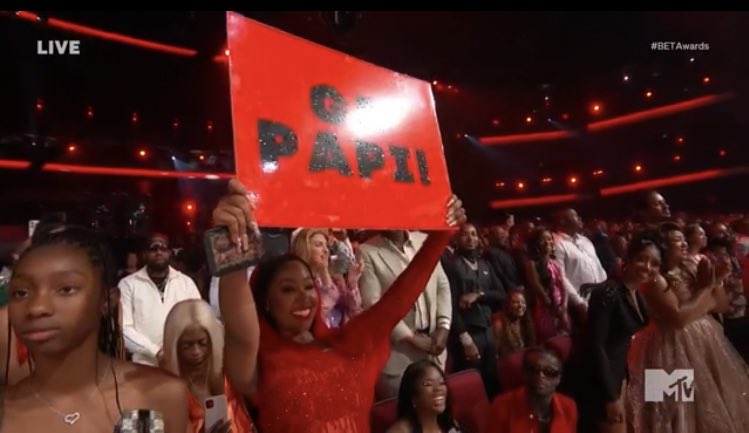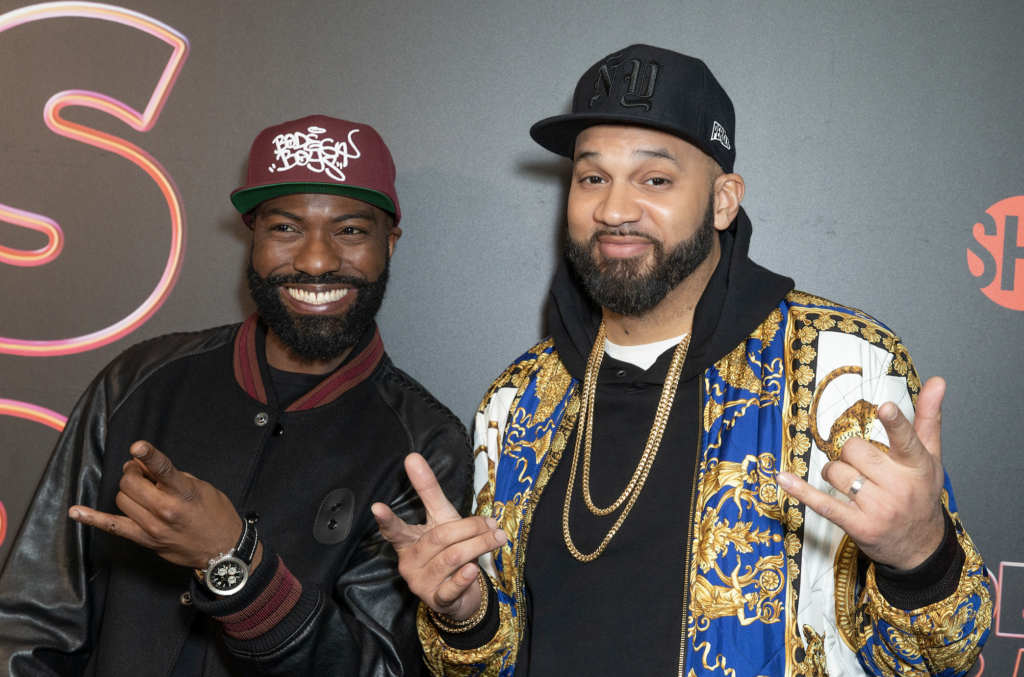Posted at 22:25h
in
Music,
Review
 Bey is back we’re all sleeping real good at night.
Bey is back we’re all sleeping real good at night.
Last night, the most important artist in popular music today released her seventh studio album, Renaissance, and in many ways, it is indeed a rebirth. Beyoncé showed us that she is truly on a new vibration with sounds we’ve never heard from her, while also giving us glimpses of Classic Bey.
The album begins with a declaration: “These motherfuckers ain’t stopping me.” That line loops throughout “I’m That Girl,” where Bey let’s us know just that over a production that is both moody and danceable. The song is an ode to self from a woman who has been the most dominant force in pop culture for the last two decades. “I didn’t want this power,” she sings, as the song makes a transition to what sounds like an entirely new song.
On this album, Beyoncé’s mad scientist style of making music is very apparent. Almost every single track sounds like a synthesis of very disparate compositions.
The ode to self is followed by an ode to Black women in general. “Cozy” celebrates the beauty and perseverance of the Black woman, and is chock full of Instagram-caption-worthy lines. In-between Beyoncé’s declarations of coziness, we hear clips of internet sensation TS Madison speaking about the depths of his Blackness.
We get more braggadocio on “Alien Superstar,” where Bey sends a clear message to her peers: “I’m one of one.” Ballroom influences can be heard in the parlance and the cadence of the beat, with the singer telling us in different ways that she’s unique. The message is underscored with the words of writer Barbara Ann Teer, who can be heard speaking to the uniqueness of Black people towards the end of the song.
“Cuff It” is the first true bop on the album. We get a melody; we get a groovy beat; we even get horns. But the best part of the song is that we get vocals. Beyoncé sings from top to bottom, and it is glorious. Based on samples of Teena Marie’s “Square Biz” and Chic’s “Good Times,” it is the album’s clear winner (and probably should’ve been its lead single).
The album’s mid-song transitions, though impressive, are no match for the track-to-track transitions — the most seamless of which can be found where “Cuff It” becomes “Energy.” The track begins with leftovers of “Cuff It” then transitions to an Afrobeats-style production. The hook is performed by Jamaican rapper (and one of the song’s co-writers) BEAM. It is followed by the album’s lead single, “Break My Soul,” in a transition aided by Big Freedia’s voice.
The title and first few seconds of “Church Girl” will have you thinking you’re about to hear a ballad, but you aren’t. “Church girls getting loose, bad girls acting snotty,” Bey sings, over a New Orleans bounce beat. DJ Jimi’s “Where They At Now,” a classic bounce track, is the most prominent of the sampled songs on “Church Girl.”
“Plastic off the Sofa” brings us as close to a ballad as we will get on Renaissance. It is an R&B song that doesn’t try to be anything else, and compared to the complex nature of most of the album, its simplicity feels radical. The song offers smooth production, smooth vocals, and even smoother lyrics. At one point, Beyoncé sings, “I think you’re so cool, even though I’m cooler than you.”
The smoothness of “Plastic off the Sofa” is maintained to the very last second, where it transitions to “Virgo’s Groove,” a song that lives up its title. It manages to be a bop and a baby-making song at the same damn time, with Beyoncé using a blunt as a metaphor for her body as she invites her lover to take a hit. It is a great track for the summer, and with their season just around the corner, you know Virgos are about to be insufferable.
At over six minutes long, “Virgo’s Groove” manages to keep you engaged throughout, which is no small feat for such a lengthy track. Bey ends the song with vocal runs that will take you back to the Dangerously in Love era.
The legendary Grace Jones lends her pen and voice to “Move,” a dancehall/Afrobeats blend that will take you on the first listen. Unlike the other obvious fusions of different compositions, this one feels particularly natural — the fact that both parts of the song are equally good doesn’t hurt. Tems also lends her pen and voice to “Move” — as if we needed more evidence that she is the It Girl of the moment. We’ve already crowned “Cuff It,” but if anyone said this was the album’s best song, we wouldn’t call them unreasonable.
“Heated” is another dancehall-yet-Afrobeats track. However, it draws from both genres in a distinctively indistinctive way — in a Drake-ish kinda way, if you will. As a matter of fact, the Canadian is credited as one of the song’s writers. His version of the song made it to the internet a month ago, but it’s not clear if it was made as a demo for Beyoncé or if the rapper/singer recorded it for one of his projects.
On “Heated,” Beyoncé pulls from the Ballroom culture once again. This time, she performs a Ballroom-style rap, where she clocks you fickle-ass fans with arguably the best line of the album: “Monday, I’m overrated, Tuesday, on my dick.” She also gives a shout-out to her late Uncle Jonny, who she credits with exposing her to “a lot of the music and culture that serve as inspiration for this album.” In 2019, she dedicated her GLAAD Vanguard Award to him, describing him as “the most fabulous gay man I’ve ever known.”
Lyrically, “Thique” is everything you thought it would be. Sonically, however, it is a bit of a surprise. It starts with a trap-style beat, but within the first minute, it turns into an fast-paced, House-ish track, where Bey gives us more Ballroom-style rap. Azealia Banks would fit in perfectly on this song.
On an album largely made up of new sounds from Beyoncé, “All up in Your Mind” manages to go even further left than the rest. The song is pop-yet-R&B-yet-EDM-yet-rock — at the same damn time. While its production feels very different, the song itself is quite orthodox in the sense that it sounds like it is a singular composition as opposed to a fusion of different songs.
Beyoncé faked us out again on “America Has a Problem,” which is not the political song you would probably expect. The problem in question is Beyoncé and her sexy body. Production-wise, “America Has a Problem” is somewhat reminiscent of Bey’s top 10 hit, “Sweet Dreams.”
“Pure/Honey” is the most naked of the fusions on Renaissance — the title gives away the fact that it is two different songs in one. “Pure” is another Ballroom joint, complete with a loop of Kevin Aviance saying “cunt, cunt, cunt” — it samples his 1996 single, “Cunty.” The track takes a sharp turn when it transitions to “Honey,” which is a groovy jam with slight disco influences. It closes with another nod to Ballroom culture, with a loop of Moi Renee saying “Miss Honey.”
The album closes with “Summer Renaissance,” which samples Donna Summer’s 1977 hit, “I Feel Love.” In a way, this sample feels like it checks multiple boxes all at once. It honors one of the “fallen angels whose contributions have gone unrecognized for far too long”; it pays homage to the queer community, which was integral to rise of disco; and it gives a nod to her earlier work — one of first singles as a solo artist, “Naughty Girl,” also samples the Queen of Disco. As the song ends and the album comes to a close, Bey lists a number of designers — included Telfar — and lets us know that she is in her bag. And that she is.
Everything about Renaissance — from the sounds to the rollout — indicates that Beyoncé is as sure of herself as she ever was. And she has reason to be. At nearly 25 years in the industry, she is able to keep her sound fresh and the demand for her music still resembles that of a hot new artist. She is every bit an alien superstar.
Album rating: 7.5 out of 10 stars.
 Mystikal was arrested on Sunday and after being charged with simple robbery, simple criminal damage to property, domestic abuse battery, false imprisonment, and first-degree rape. The arrest stems from an incident that took place Saturday night. He is currently being held without bond. The alleged victim is said to have sustained minor injuries.
Mystikal was arrested on Sunday and after being charged with simple robbery, simple criminal damage to property, domestic abuse battery, false imprisonment, and first-degree rape. The arrest stems from an incident that took place Saturday night. He is currently being held without bond. The alleged victim is said to have sustained minor injuries.







